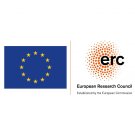EDIPO - Education, Diversity, Innovation, and Politics

Mara Squicciarini
Principal Investigator
ERC-2021-STG
September 2022- August 2027
Grant Agreement ID: 101042055
The introduction of free and universal education, accessible to diverse religious and cultural groups, has been a major achievement worldwide and a crucial factor for economic development. However, still today, many countries do not guarantee full access to education, religious minorities often face restricted learning opportunities, and top educational institutions are being dismantled if they dissent from governments' policies. The over-arching goal of EDIPO is to study these extremely important phenomena through the lenses of quantitative economic history, focusing on France from the 1789 French Revolution to the 1900s. This was a period of educational reforms, key for French and, more broadly, for European modernization. The innovativeness of this proposal is twofold: (i) it constructs ground-breaking micro data from archival and secondary sources, of similar quality and detail of modern data, but for a longer time horizon; (ii) it identifies unique historical episodes to assess causality and to study the long-term effects. EDIPO is composed of three projects: Project 1 studies the process of expansion of mass education, from its demand to its consequences. Project 2 asks how discrimination affects schooling choices of religious minorities. Project 3 documents the impact of dismantling a high-quality but dissident educational institution on human capital, innovation, and political outcomes. EDIPO speaks to economists, economic historians, and political scientists. It sheds light on past and current instances of expansion and secularization of education, and it contributes to important public debates, e.g., the importance of achieving universal education; the increasing diversity of our society and the discrimination often faced by minority groups; and the dismantling of institutions training outstanding (but dissident) scholars.
Article on Bocconi Knowledge:

This project has been funded by the European Research Council (ERC) under the European Union’s Horizon Europe research and innovation programme.